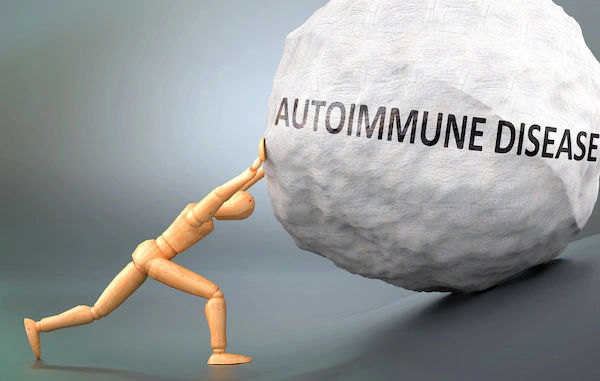Your Nightly Journey A Complete Guide to What Happens When You Sleep
Know about the journey during sleep, how sleeping is rest, sleep stages, neurological healing, physical repair and rejuvenation and more.

Written by Dr. Mohammed Kamran
Reviewed by Dr. Shaik Abdul Kalam MD (Physician)
Last updated on 13th Jan, 2026

Introduction
You spend about a third of your life doing it, but what really happens when you sleep? It’s far from a state of passive inactivity. Instead, sleep is a dynamic, essential process where your brain and body embark on a meticulously orchestrated series of tasks crucial for your survival, health, and well-being. From solidifying memories and processing emotions to repairing tissue and recharging your immune system, the night shift is the busiest and most productive time for your internal systems. This guide will demystify the fascinating science behind your sleep cycles, exploring the profound neurological and physical transformations that occur from the moment you close your eyes to the moment you wake up. Understanding this process is the first step toward prioritising and optimising your sleep for a healthier, more vibrant life.
Why Sleep is More Than Just Rest
For centuries, sleep was misunderstood as a passive state, a mere pause in our waking lives. Modern science, however, reveals it to be an intensely active and critical biological imperative. Think of it not as shutting down, but as switching to a different mode of operation—one dedicated to maintenance, repair, and preparation. Consistent, quality sleep is foundational to nearly every aspect of our health. It sharpens our cognitive functions, stabilises our moods, fortifies our immune defenses, and regulates our metabolism.
Depriving yourself of sleep doesn't just make you tired; it disrupts these vital processes, increasing the risk of chronic conditions like heart disease, obesity, diabetes, and neurodegenerative disorders. Recognising sleep as a non-negotiable pillar of health is the key to unlocking its restorative power.
Consult a General practitioner for Personalised Advice
The Architecture of Sleep: Understanding Your Nightly Cycles
Throughout the night, you don’t experience one uniform state of sleep. Instead, you progress through a series of distinct stages, each characterised by unique brain wave patterns, eye movements, and physiological responses. This pattern repeats every 90-120 minutes, forming your sleep architecture. A full night's rest typically includes 4-6 of these cycles.
Stage 1 (N1): The Gateway to Sleep
Stage 1 is the light, transitional phase between wakefulness and sleep, typically lasting several minutes. Your brain produces alpha and theta waves, your muscles begin to relax, and your heart rate and breathing slow down. During this brief period, you can be easily awakened and might experience sudden muscle contractions preceded by a sensation of falling (hypnic jerks).
Stage 2 (N2): Light Sleep and Preparation
This stage accounts for the largest portion (about 50%) of an adult's total sleep. Your body goes into a more subdued state: your body temperature drops, eye movements stop, and brain wave activity slows further with occasional bursts of rapid activity called sleep spindles and large waves called K-complexes. These are believed to play a role in memory consolidation and protecting the brain from external stimuli. Your body is preparing to enter deep sleep.
Stage 3 (N3): Deep Sleep for Restoration
Stage 3, known as slow-wave sleep or deep sleep, is the most restorative phase. It is crucial for physical recovery and feeling refreshed in the morning. It's very difficult to wake someone from deep sleep; if you are awakened, you often feel disoriented and groggy. During this stage, the brain emits slow delta waves. This is when the body undergoes significant physical repair: tissue growth and repair occur, energy is restored, and crucial hormones for growth and development are released.
Stage 4 (REM: The Dream Stage
REM (Rapid Eye Movement) sleep is perhaps the most famous stage, first occurring about 90 minutes after falling asleep. As the name suggests, your eyes move rapidly behind your eyelids. Your brain wave activity becomes remarkably similar to when you are awake, your breathing becomes faster and irregular, and your heart rate and blood pressure increase. Interestingly, your arm and leg muscles become temporarily paralysed (atonia), likely to prevent you from acting out your dreams.
REM sleep is crucial for cognitive functions such as learning, memory processing, and emotional regulation. Most of your vivid dreaming occurs during this stage, and its duration lengthens with each cycle as the night progresses.
Your Brain on Sleep: A Neurological Power Wash
While your body is still, your brain is working overtime. The night is when it files away the day's experiences, processes emotions, and performs essential housekeeping.
Memory Consolidation and Learning
Sleep plays a fundamental role in memory. During NREM sleep, particularly Stage 2 and SWS, the brain strengthens and consolidates declarative memories (facts and figures) and procedural memories (how to do things, like playing an instrument). It's like the brain is transferring important data from the short-term storage (hippocampus) to the long-term storage (neocortex), making memories more stable and resilient. REM sleep, on the other hand, is linked to consolidating spatial and emotional memories, helping you process the events of the day.
The Glymphatic System: Clearing Brain Waste
A groundbreaking discovery revealed that the brain has its own unique waste-clearance system: the glymphatic system. This system becomes highly active during deep NREM sleep. Brain cells shrink slightly, allowing cerebrospinal fluid to flow through and flush out toxic metabolic byproducts that accumulate between cells during waking hours. One of these waste products is beta-amyloid, a protein that forms the plaques associated with Alzheimer's disease. This is why chronic sleep deprivation is considered a significant risk factor for neurodegenerative conditions.
Your Body's Night Shift: Physical Repair and Rejuvenation
Simultaneously, your body uses this period of low energy expenditure to conduct critical repair work.
Muscle Repair and Growth Hormone Release
Deep sleep (N3) triggers the pituitary gland to release a pulse of human growth hormone (HGH). This hormone is vital for muscle growth and repair, bone building, and cell regeneration. It helps repair micro-tears in muscle tissue caused by daily activity and exercise, which is why athletes prioritise sleep for recovery.
Immune System Boost and Inflammation Control
Sleep is a powerful immune modulator. During sleep, your body produces and releases cytokines, which are proteins that target infection and inflammation. A lack of sleep can impair the production of these protective cytokines and infection-fighting antibodies, making you more susceptible to illnesses. Studies have shown that people who don't get quality sleep are more likely to get sick after being exposed to a virus.
Hormonal Regulation: Appetite and Metabolism
Sleep has a direct impact on the hormones that control hunger. It increases levels of leptin (the hormone that signals fullness) and decreases levels of ghrelin (the hormone that stimulates appetite). When you are sleep-deprived, this balance is disrupted, leading to increased hunger and cravings for high-calorie, high-carbohydrate foods. This hormonal shift is a key reason why poor sleep is strongly linked to weight gain and an increased risk of type 2 diabetes.
What Disrupts This Delicate Process? Common Sleep Saboteurs
Modern life is filled with elements that can disrupt our natural sleep architecture. These saboteurs include:
1. Blue Light Exposure: Screens from phones, tablets, and computers suppress melatonin production, the hormone that signals sleep.
2. Caffeine and Alcohol: While alcohol may make you drowsy initially, it severely disrupts REM sleep later in the night. Caffeine is a stimulant that can delay sleep onset.
3. Irregular Schedules: Inconsistent bedtimes and wake times confuse your body's internal clock (circadian rhythm).
4. Stress and Anxiety: A racing mind is the enemy of sleep, making it difficult to fall asleep and preventing the descent into deep, restorative stages.
5. Sleep Disorders: Conditions like sleep apnea (paused breathing during sleep) directly fragment sleep architecture, preventing deep and REM sleep.
How to Support Your Body's Natural Sleep Cycles
To ensure you get the full benefit of all sleep stages, prioritise good sleep hygiene:
1. Maintain a Schedule: Go to bed and wake up at the same time every day, even on weekends.
2. Create a Ritual: A calming pre-sleep routine (e.g., reading, taking a warm bath) signals to your body that it's time to wind down.
3. Optimise Your Environment: Keep your bedroom cool, dark, and quiet. Invest in a comfortable mattress and pillows.
4. Limit Screen Time: Avoid screens for at least an hour before bed.
5. Watch Your Diet: Avoid large meals, caffeine, and alcohol close to bedtime.
If you consistently struggle with sleep despite good hygiene habits, it may be time to seek professional advice. If symptoms of fatigue, loud snoring, or insomnia persist beyond two weeks, consult a doctor online with Apollo24|7 for further evaluation. They can help identify any underlying conditions like sleep apnea.
Conclusion
Understanding what happens when you sleep transforms it from a mundane necessity into a fascinating and vital biological process. Each night, your body and brain partner in a complex dance of restoration, repair, and reinforcement. By prioritising sleep, you are not just avoiding tiredness; you are actively investing in your cognitive sharpness, emotional resilience, physical health, and overall longevity. It is the ultimate act of self-care. Tonight, give yourself the gift of uninterrupted slumber and allow your incredible internal night shift to do its best work. Your waking self will thank you for it.
Consult a General practitioner for Personalised Advice
Consult a General practitioner for Personalised Advice

Dr Suseela
General Physician
5 Years • MBBS
Bengaluru
Apollo Medical Center, Marathahalli, Bengaluru

Dr. Rajib Ghose
General Physician/ Internal Medicine Specialist
25 Years • MBBS
East Midnapore
VIVEKANANDA SEBA SADAN, East Midnapore

Dr. Debdatta Pati
Psychiatrist
18 Years • MBBS, DPM, MD (PSYCHIATRY)
Kolkata
MCR SUPER SPECIALITY POLY CLINIC & PATHOLOGY, Kolkata

Dr. Arthi S
Family Physician
3 Years • MBBS
Bengaluru
PRESTIGE SHANTHINIKETAN - SOCIETY CLINIC, Bengaluru

Dr Syed Mizra M
General Physician/ Internal Medicine Specialist
2 Years • MBBS
Bengaluru
PRESTIGE SHANTHINIKETAN - SOCIETY CLINIC, Bengaluru
Consult a General practitioner for Personalised Advice

Dr Suseela
General Physician
5 Years • MBBS
Bengaluru
Apollo Medical Center, Marathahalli, Bengaluru

Dr. Rajib Ghose
General Physician/ Internal Medicine Specialist
25 Years • MBBS
East Midnapore
VIVEKANANDA SEBA SADAN, East Midnapore

Dr. Debdatta Pati
Psychiatrist
18 Years • MBBS, DPM, MD (PSYCHIATRY)
Kolkata
MCR SUPER SPECIALITY POLY CLINIC & PATHOLOGY, Kolkata

Dr. Arthi S
Family Physician
3 Years • MBBS
Bengaluru
PRESTIGE SHANTHINIKETAN - SOCIETY CLINIC, Bengaluru

Dr Syed Mizra M
General Physician/ Internal Medicine Specialist
2 Years • MBBS
Bengaluru
PRESTIGE SHANTHINIKETAN - SOCIETY CLINIC, Bengaluru
More articles from General Medical Consultation
Frequently Asked Questions
1. How much deep sleep and REM sleep do I need?
Most adults aim for about 13-23% of their total sleep in deep sleep (N3) and 20-25% in REM sleep. For a 7-8 hour night, that translates to roughly 55-110 minutes of deep sleep and 90-120 minutes of REM sleep. These amounts naturally decrease with age.
2. Why do I sometimes remember my dreams and other times I don't?
You are most likely to remember a dream if you wake up during or immediately after a REM period. If you wake up from a non-REM stage, you are far less likely to recall any dreaming. The content and emotional intensity of the dream can also affect recall.
3. Is it true that your brain is more active during sleep than when you're awake?
During REM sleep, your brain's overall activity, as measured by energy consumption and electrical patterns, is very similar to when you are awake. In some regions, it can be even more active. This is why REM is associated with intense dreaming and cognitive processing.
4. What happens to your heart rate and breathing during sleep?
Generally, your heart rate and breathing slow down and become very regular during non-REM sleep, especially deep sleep. During REM sleep, they become more variable, irregular, and can increase to near-waking levels due to brain activity and dream content.
5. Can you 'catch up' on lost sleep?
While sleeping in on weekends can help reduce your sleep debt, it cannot fully reverse the effects of consistent sleep deprivation. One or two nights of good sleep can improve alertness, but cognitive functions like concentration and memory may take longer to recover. The best strategy is consistent, quality sleep every night.




